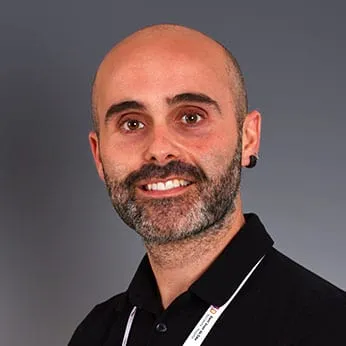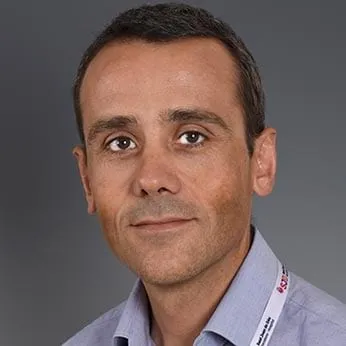
In the Diagnostic Imaging Area at SJD Barcelona Children's Hospital, we not only observe the image and interpret it, but also analyse the operation and behaviour of the organs.
We believe that there is a paradigm shift and that, at present, it is important to not only identify or diagnose the disease, but also to perform appropriate follow-up to offer the best possible treatment and results.
We support all pediatric specialties, both for inpatients and outpatients. A pediatric radiologist is on call 24 hours a day, seven days a week, offering continuous emergency care in all forms of diagnostic imaging. Each year we perform more than 5,000 CT scans and 6,000 MRIs in a space adapted to pediatric patients.
Why SJD Barcelona Children's Hospital?
The professionals of the Diagnostic Imaging Area at SJD Barcelona Children's Hospital have extensive experience in the use of child-oriented diagnostic techniques.
We are aware of the anguish that tests can cause children, so we use anesthetic support and we adapt to the age and condition of each patient.
We use cutting-edge technology to improve diagnosis
High-tech and humanised equipment
We use cutting-edge technology to improve diagnosis
- The Diagnostic Imaging Service works with state-of-the-art equipment that allows it to perform complex studies in different specialities (cardiac, oncological, foetal and neonatal).
- We use elastography, an ultrasound technique that gives us information about the rigidity of tissues and helps increase the accuracy of the diagnosis. Likewise, we are the only pediatric hospital in Catalonia that exclusively uses 3 Tesla magnetic resonance imaging scanners only on pediatric patients. This technology allows us to generate images of greater resolution, which helps to reduce the duration of the test and to identify diseases more accurately.
- In addition to technology, we work to ensure that patients have a good experience when undergoing medical tests and that procedures can be carried out safely and efficiently.
We use pioneering radiation measurement systems to guarantee the use of the minimum necessary doses
Protocols adapted to children and adolescents
We use pioneering radiation measurement systems to guarantee the use of the minimum necessary doses
- We are concerned about safety, which is why we work with the minimum dose of radiation, always adapted to the patient's age and weight, whether infants, children or adolescents. We also try to inject the minimum dose of contrast or radiation possible and as well as the right amount of anesthesia (where it is required) to suit the duration of the test.
- We are pioneers in the use of DoseWatch monitoring software, which measures the radiation volume of the CT scan. This measurement is adapted to the European directive 2013/59 EURATOM for protection from risks derived from exposure to ionising radiation, which must be complied with in the European Union from 2018 onwards.
The use of immobilisation devices is useful to reduce the dose of anesthesia required.
Pediatric patient-oriented professionals
The use of immobilisation devices is useful to reduce the dose of anesthesia required.
- A highly-specialised team trained in leading hospitals works to make our patients feel comfortable during the diagnostic tests. The environment, machines and procedures are designed to minimise discomfort for children.
- The preparation of the tests and the prior information minimise the fear that children experience and are also useful for the family.
- In magnetic resonance imaging, the use of special glasses in which videos can be viewed has led to an 18% fall in sedation.
- In the ultrasound rooms, the screens installed in the ceiling have also reduced the duration of the diagnostic tests and help relax the children.
- We also use anesthetic support as an element of immobilisation depending on the patient and the study to be performed.
- To enhance patient comfort, a family member can accompany them during the test.
We are a highly-specialised team trained in leading hospitals works to make our patients feel comfortable during the diagnostic tests.
Second opinion service from expert radiologists
We are a highly-specialised team trained in leading hospitals works to make our patients feel comfortable during the diagnostic tests.
We work for all specialties of the hospital, notably in the following fields:
- Neurosurgery.
- Musculoskeletal system.
- Fetal and infant medicine (fetal magnetic resonance imaging).
- Cardiothoracic and abdominal system.
- Interventional Radiology (Haemodynamics, Oncology, Neurology).
- Women (pelvis and breast).
Services and techniques
Diagnostic imaging tests go beyond traditional radiography and include, among other techniques, computerised tomography (CT), magnetic resonance imaging (MRI), ultrasounds that detect tumours or molecular diagnostic systems that combine nuclear medicine techniques with imaging technology.
Tests we perform
Our professionals
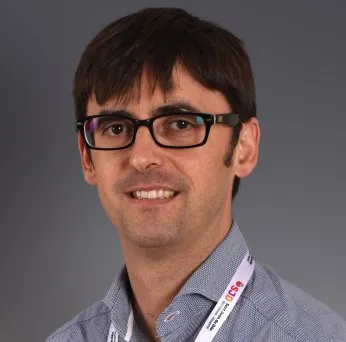
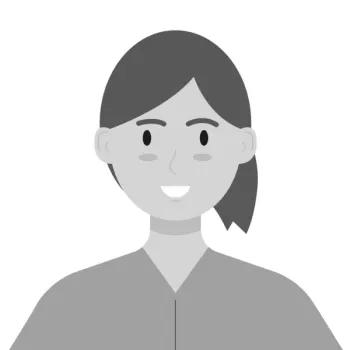
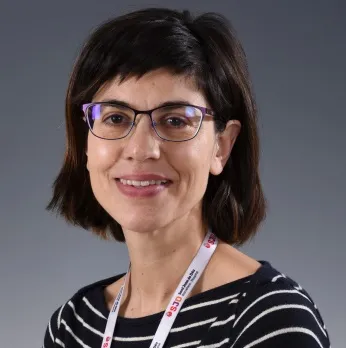
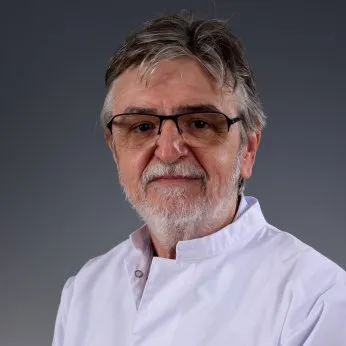
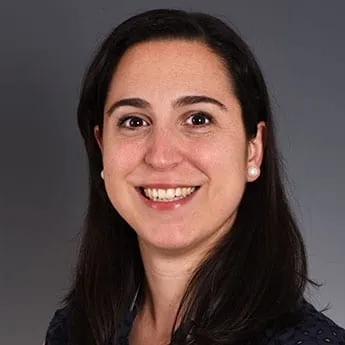

Technical specialists
- Carlos Javier García Mallo
- Alba Carrillo Rauet
- Maria Dolores Ruiz Torres
- Josefa Fernández Torres
- Manuel Gómez Ponce
- Isabel María González Hernández
- Lenia González Sandoval
- Susana Hernández Núñez
- Melisa Jiménez Trevejo
- Antonio Lausin Agudo
- Anna Mir Besse
- Alba Osorio Gutiez
- Laura Prieto Borges
- Maria Teresa Robles Díez
- Estela Mendoza Bielsa
Research
We have an extensive iconographic archive that we use for educational and scientific purposes. As part of a department collaborating with multiple hospital areas, the Diagnostic Imaging team participates in many of the Hospital's research groups and clinical trials, which include the following specialties:
- Neurology (epilepsy).
- Fetal Medicine.
- Cardiology.
- Oncology.
- Traumatology and Orthopaedics.
- Psychiatry and Psychology.
Teaching
In addition to internal training, professionals of the Area participate in the following courses:
- Collaboration in postgraduate and master's studies.
- Monographs on Pediatric Radiology.
- Continuous Diagnostic Imaging refreshing course.
- Agreement with the Inter-American College of Radiology (CIR). This agreement allows us to work with professionals from outside of Spain.
SJD Barcelona Children's Hospital is a university hospital affiliated with the Universitat de Barcelona. We share our knowledge and train professionals so that they may specialise in high-complexity medicine.
Information for families
It is very important that you let us know:
- If the patient is asthmatic or has had an allergic reaction to the radiological contrast agent, drugs or food.
- If the patient is receiving any treatment.
- If the patient experiences persistent dizziness or vomiting and fever hours after anaesthesia. In this case, notify the hospital as soon as possible.
- If you are a woman and you think that you could be pregnant.
Below are a number of warnings and tips for families that will be useful to you if your child has to undergo diagnostic imaging tests.
